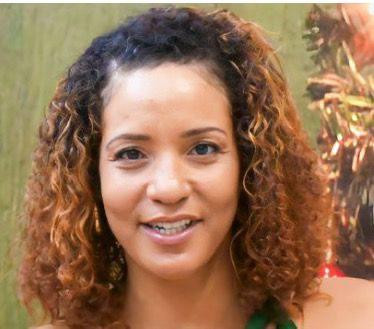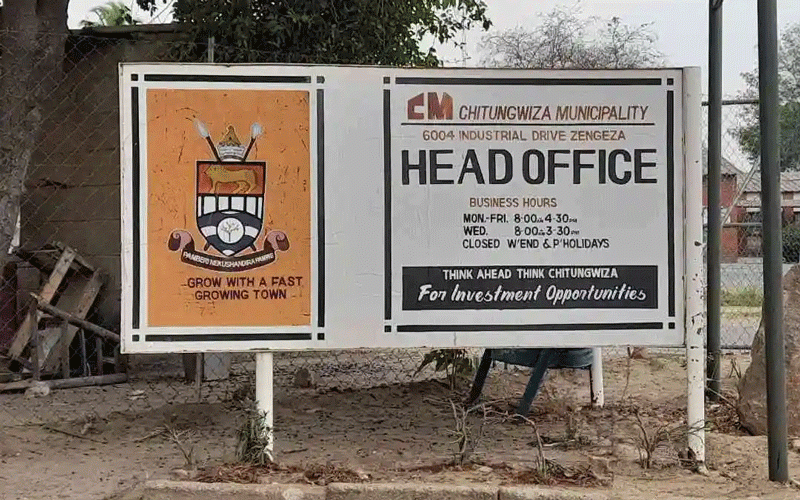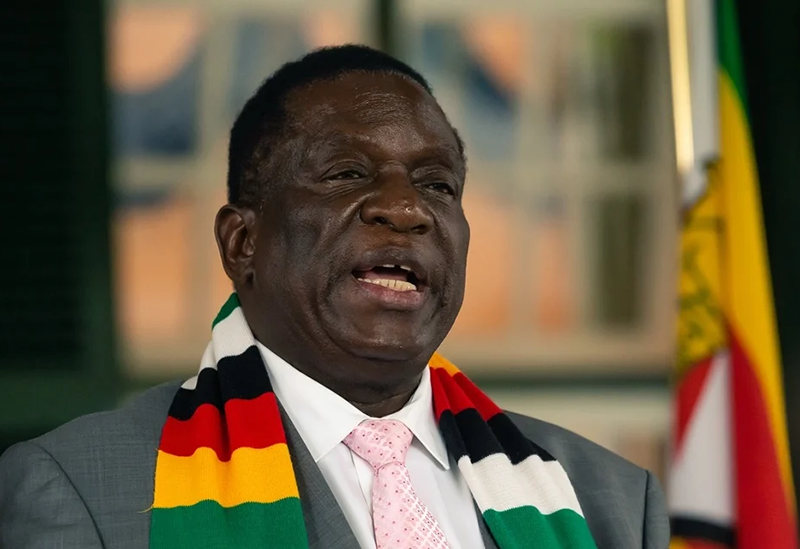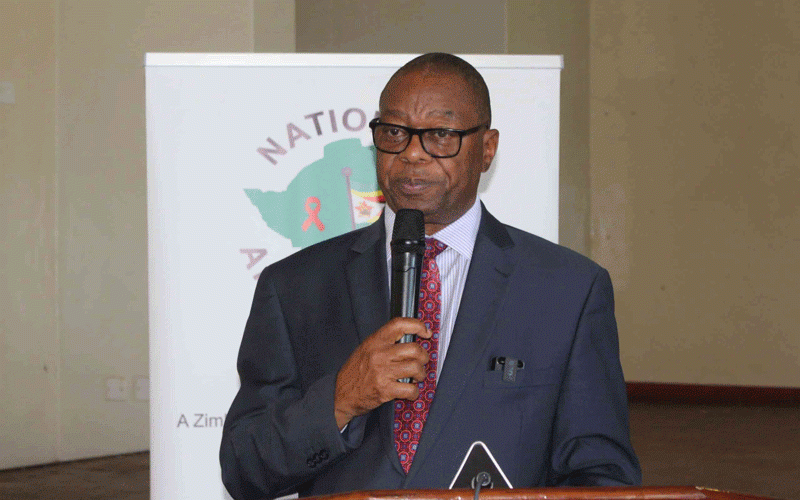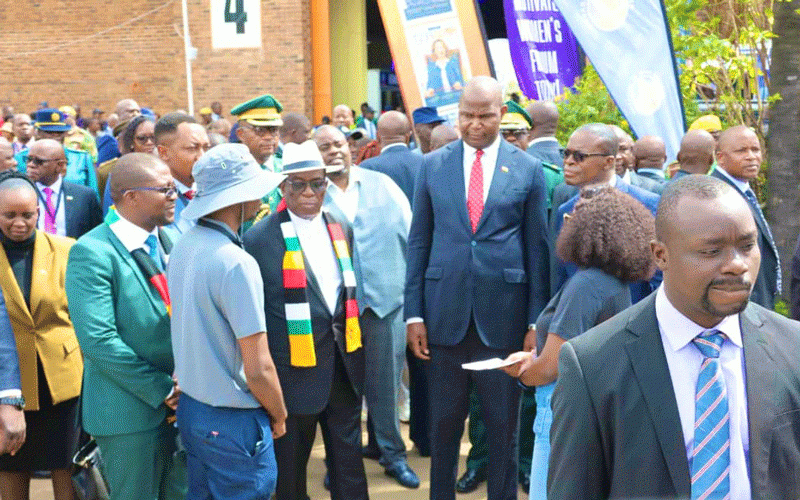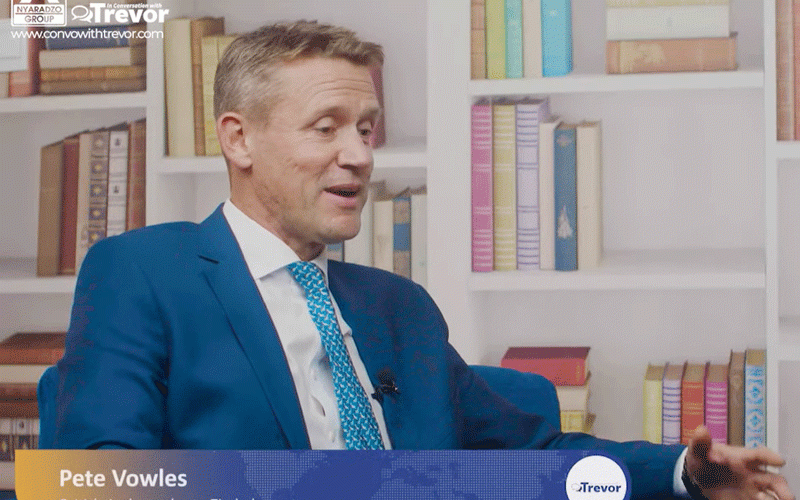
British ambassador to Zimbabwe Peter Vowles says his early career as an expatriate working in Mudzi, Harare and Bulawayo made him fall in love with the country.
Vowles (PV) reflected on his time in Zimbabwe since his appointment as ambassador this year when he appeared on the platform In Conversation with Trevor hosted by Alpha Media Holdings chairman Trevor Ncube (TN).
Below are excerpts from the conversation.
TN: Today, I'm in conversation with Peter Vowles, the British ambassador to Zimbabwe.
Greetings, welcome to In conversation with Trevor UK Series brought to you by the Nyaradzo Group.
Peter Vowles, welcome to In Conversation with Trevor.
PV: Thank you. It’s a huge privilege and honour to be in conversation with you.
- Mbavara eyes to resurrect Matavire’s music legacy
- Zim exiles panic over SA permits
- Zim exiles panic over SA permits
- Social media platforms should act on hate speech
Keep Reading
TN: We have wanted to do this for a while, and then you lost your voice but finally we get to do it. We are finally here.
PV: Yes, perfect
TN: Wonderful! looking at your life and reading around the things that you have been able to do.
Something strikes me as unique and interesting, you love this country hey?
PV: I absolutely love this country. My sort of formative years were spent here in Zimbabwe.
The first job of my career, back in the day when Zimbabwe hired young expert teachers and put them in rural areas.
So I was employed by the Ministry of Education to be a teacher in Mudzi where I spent a year and it was a transformational year for me.
I learned so much about the world, about myself.
I saw the world from a different perspective and then I went on from there to live in Murehwa where I rented an office from the district council and lived in the growth point and then traveled around Mashonaland East for a couple of years again where I learned so much and then I left.
I had a couple more years here in Harare and in Bulawayo.
TN: Before you leave, you say it was transformational.
Unpack that for me. That’s a big term. What does it mean? What happened to you in terms of your relationship with the world and you are developing as a person? What did that mean?
PV: Well I was a young British man who lived a reasonably kind of normal life in Britain probably from a sort of middle class family.
My family had travelled a bit when we were younger, but I lived in the east.
In fact in the east of the country for my schooling and then here I was in Zimbabwe living in the middle of rural Zimbabwe and it was a complete, obviously, culture shock, but complete change.
A completely different perspective on the world, which has stayed with me ever since I started seeing the world, seeing different perspectives, coming to Harare occasionally and just lived a life that was just so different.
I think for young people having that just complete change of perspective. I mean it's fascinating.
I learned so much about what matters in the world because I was living in a community that was living with very little at the time and it just gave me the set of perspectives that I would never have.
TN: So what matters in the world, I mean you are down there in Guruve, you are down in Mudzi. What then at the end of the day says to you what actually matters?
PV: I think humankind, people, the relationships you form are so central to everything and I guess it's probably fair to say that Britain in the 1990s was becoming more and more consumerist as even moreso today where so much is about what you own and what you possess.
I think probably spending that time in Mudzi, that it's not all about owning things and possessing things but just about the relationships that people had and the family, the importance of family.
I think you know the importance of belief and kind of cultural connections all of those things that I think I have kept with me ever since.
I have been fortunate enough to have a career that's taken me all over the world since, but I always come back to those experiences of what it felt like living in a community in Zimbabwe and that's just stayed with me; amazing.
TN: Talk to me about what made you apply to be a teacher. Did you apply to be a teacher, what was the process that made you take that route and say Zimbabwe and not Malaysia or something?
PV: Chance, pure chance. When I left school, there were various schemes and I think young people were looking for things to do, you know.
I could have gone travelling around the world or I could have done a number of different things and actually I came across this scheme where the Ministry of Education was hiring British people.
We had to go out and do some training and then come here.
So it was pure chance and one of those things where you don't plan.
I didn't plan Zimbabwe. I hadn't thought I wanted to go...it was pure chance and the whole of my life has in some way been connected to Zimbabwe since then, but it was a chance moment.
TN: It's fascinating that this chance moment has become so transformational to you and that's what life is about, isn't it, you handle chances, you are handing opportunities and you embrace those opportunities and they transform you?
PV: I think absolutely you’re right Trevor.
I think you can strategise and you can plan a lot and it's sometimes good to have a plan but also it's about taking opportunities.
I have taken things that have been interesting or apply for things that have been interesting and they have been chance moments and they shape a career and they shape a life.
I have sort of sometimes had a sort of vague plan where you want to go, but ultimately it's those moments and it's those opportunities and I think for my kids and when you know they are younger now as they grow up.
You know making sure people look at those and see what are the opportunities and take them when they get them so real and grab them.
TN: Is it a process that you would recommend to a young person growing up to say immerse yourself in situations of this nature, what is valuable in life as you said?
PV: I think putting yourself into difficult positions is key for me.
It’s a key thing to do, sort of finding ways to put yourself out of your comfort zone, test yourself in different ways and I think I have been reading a book of my own called, Do hard things, but it's all about how you build mental resilience, by putting yourself into difficult circumstances that force you to adjust and adapt.
I think, if anything, for young people today the thing that they are going to need around the world wherever you are, from the UK or from Zimbabwe you are going to need those adaptive skills because the world is changing around us at such a fast pace.
It is not going to be linear. It isn't going to be linear or predictable.
So having the ability to find yourself in a new situation, to manage that situation, to adapt to it, I think it's going to be one of life's key competences that we are all going to need and our young people are going to need.
TN: When we started, you said you loved this country because you then came back in 2003 for your honeymoon.
I mean that, if anything, says this man loves this country.
Talk to me about that decision to say for my honeymoon I'm going to Zimbabwe in 2003?
PV: Well I probably spent about five years here on and off from when I was in Mudzi, in Murewa came back and was in Harare for a bit and in Bulawayo for a bit, so it was in my blood.
In a way I'm a foreigner and I'm British, but in some ways that I loved the music, the country and the people I had met been were so fantastic.
So when I got married, my wife Hannah and she obviously heard me talking about Zimbabwe endlessly and as we had met at the time, she is British-Scottish, and in the time we had met she heard me playing Zimbabwean music all the time.
She had to put up with me talking about Zimbabwe all the time.
So when it came to the moment of choosing where we should go for our honeymoon Zimbabwe was an obvious choice so there was no question.
TN: Where did you go for your honeymoon?
PV: We came to Harare, we went up to hippo pools for a weekend and across to Vumba and in the Eastern Highlands.
TN: So Peter, you have been back as an ambassador now for a year and you having known the country not as an ambassador, you have taken time to get to know the country as a diplomat, as an ambassador.
You have talked to a lot of people, talk to me about what it is that you are hearing from the people that you are talking to, government officials, opposition political parties and major political parties.
What are the concerns that you are encountering regarding this country?
PV: Well I should first say, I mean, it was never my wildest dreams I would be sitting in this chair talking as a British ambassador and it's a privilege, and an honour that I don't take lightly.
I should say, there's probably, I know this in my heart, there's probably nowhere else in the world where I will ever be posted where I care so much about the relationship between the two countries given the history I had here and you are right I have spent that last year in a very different context.
Just a quick digression, it's really important, I find it really important to try to keep grounded because suddenly I'm in this position where there's a Union Jack on the front of my car and people call you "Your Excellency" and you know I think for me trying to keep remembering what it was like living in Zimbabwe before and keep grounded.
I spent a lot of time last year, really intentionally building wide sets of relationships across the political Spectrum, across the financial and business community, learning as much as I can about the country and not assuming.
I think you know I'm an optimist and I'm extremely positive as always, have been extremely positive about Zimbabwe, the human capital, the kind of education, the resilience, the natural resources, the climate.
There is so much in Zimbabwe to make it such a fantastic country but of course I think you know there are concerns and I think you know your watchers and your listeners will certainly be aware and I think you know Zimbabweans know better than I do.
Some of the challenges, economic challenges, stability for instance, the informalisation and jobs access to power particularly this time of the year or this year particularly in terms of the drought you know, it’s a really difficult situation for people.
So I am under no Illusion of how challenging things are but continue to be positive about the prospects.
l “In Conversation With Trevor” is a weekly show broadcast on YouTube.com//InConversationWithTrevor.

